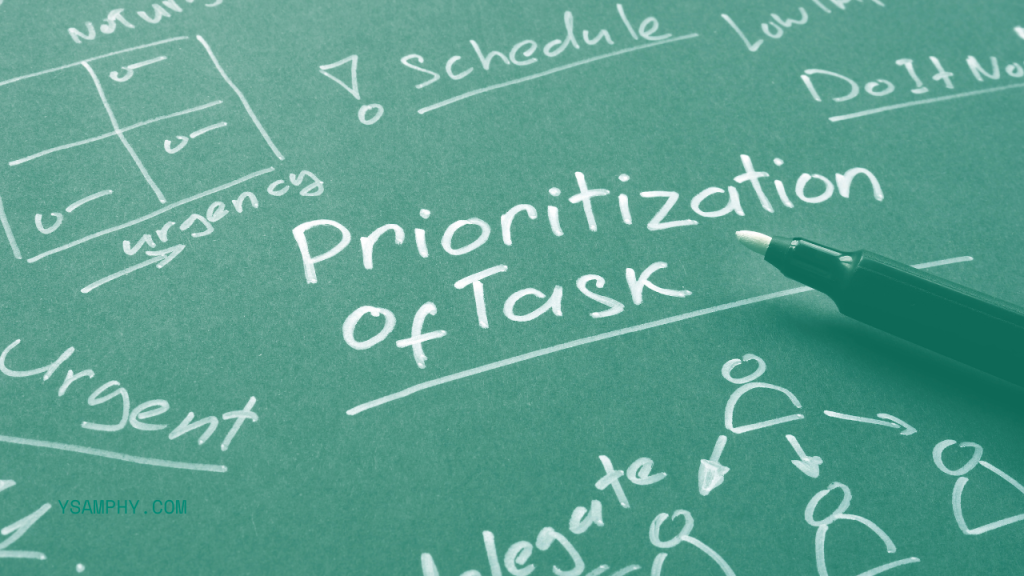In the legal profession, time is often equated to money. With most lawyers working more than 40 hours per week, time management is crucial. Whether you’re handling multiple cases, meeting tight deadlines, or juggling client communications, effective time management can enhance productivity, reduce stress, and even improve client satisfaction. Lawyers who optimize their time not only increase efficiency but also free up space for strategic thinking, client development, and personal well-being.
Mastering time management allows lawyers to maintain a better work-life balance, which is increasingly important in a high-pressure profession. By efficiently allocating time to various tasks, lawyers can avoid burnout, minimize errors, and deliver higher-quality work. Additionally, effective time management can create opportunities for professional growth, such as networking, continuing legal education, and thought leadership. Ultimately, developing strong time management skills not only enhances personal and professional satisfaction but also sets the foundation for a more sustainable, long-term career.
Here are 12 practical tips to help lawyers maximize productivity and make the most of every hour.

1. Prioritize and Organize Tasks
Many successful lawyers utilize the Eisenhower Matrix to organize their tasks. The Eisenhower Matrix is a powerful tool to help sort tasks based on urgency and importance. This technique categorizes tasks into four quadrants:
Urgent and Important
These are tasks that must be completed immediately and may include critical case deadlines, client emergencies, court filings, or responding to time-sensitive legal matters. For example, submitting documents before a statute of limitations expires or preparing for an impending court hearing falls into this category. Prioritizing these tasks ensures that essential legal obligations are met without jeopardizing a client’s case or the firm’s reputation.
Important but Not Urgent
These are tasks that could be scheduled for later, such as long-term case strategy planning, networking with potential clients, updating legal research, or attending continuing legal education (CLE) seminars. While these activities are crucial for career growth and the success of your practice, they don’t require immediate action and can be scheduled for times when more urgent matters are under control. By regularly dedicating time to these tasks, you ensure consistent progress toward your professional goals without neglecting day-to-day responsibilities.
Urgent but Not Important
These are tasks that may be delegated to others for completion. Some of these may include scheduling meetings, answering routine client inquiries, filing documents, or handling administrative tasks like billing and invoicing. While these tasks need to be done promptly, they don’t require your direct involvement, allowing you to delegate them to junior associates, paralegals, or administrative staff, freeing up your time for more critical legal work.
Neither Urgent Nor Important
Eliminate or reduce these tasks, as they often serve as distractions and do not contribute to your productivity or overall goals. These might include excessive social media browsing, attending unnecessary meetings, or engaging in tasks that offer little professional value. By minimizing or cutting out these activities, you can focus on what truly matters and allocate your time more effectively toward meaningful work.
By regularly sorting tasks with this method, you can focus on what truly needs your attention, avoid distractions, and allocate your time more efficiently.

2. Set SMART Goals for Daily, Weekly, and Monthly Tasks
Lawyers often manage several cases and deadlines simultaneously. Breaking down these tasks into smaller, manageable goals using the SMART criteria (Specific, Measurable, Achievable, Relevant, and Time-bound) can be incredibly helpful. This system ensures that your goals are clearly defined and actionable, helping you stay on track and avoid feeling overwhelmed.
For instance, instead of a vague goal like “Prepare for trial,” break it down into smaller objectives like “Research case precedents,” “Draft opening statement,” and “Organize evidence files.”
3. Leverage Legal Tech Tools
Legal tech solutions are game changers when it comes to managing time and productivity. There are several tech tools that are available that may allow you to automate document management, client intake processes, billing, and more. Utilizing these tools not only saves time but also reduces the likelihood of errors.
Invest in practice management software that allows you to store documents in a centralized location, track billable hours accurately, and manage your tasks from one dashboard. Legal tech can also enhance collaboration with your team by providing a shared workspace.
4. Hire a Virtual Assistant
Hiring a legal virtual assistant can significantly streamline your day-to-day operations without the high cost of employing a full-time staff member. Virtual assistants can manage tasks like scheduling appointments, following up with clients, organizing files, and conducting preliminary legal research. They can also assist with maintaining your calendar and handling routine communications, ensuring that your workflow remains uninterrupted.
Delegating time-consuming administrative tasks allows you to focus on core legal work, such as preparing for trials or meeting with clients. Since virtual assistants often work on a part-time or project basis, this approach is both cost-effective and flexible.
5. Utilize Time Blocking for Focused Work
Time blocking is a productivity strategy that involves dividing your day into chunks of time, each dedicated to a specific task or group of tasks. This method minimizes multitasking and helps you maintain focus on one task at a time. By scheduling your day in advance, you can allocate sufficient time for important tasks while also preventing less critical activities from encroaching on your most productive hours.
6. Set Boundaries with Email and Phone Communication
Constantly checking emails and answering phone calls can drain your productivity. To combat this, establish specific times during the day for checking and responding to messages. Inform clients and colleagues that you are available for calls during certain hours, which will help reduce interruptions.

7. Practice the Two-Minute Rule
When handling daily tasks, if something can be completed in two minutes or less, do it right away. This principle helps eliminate small tasks that can pile up over time, allowing you to focus on more critical work.
Whether it’s replying to a quick email, signing off on a document, or returning a short phone call, addressing these tasks immediately prevents them from becoming bigger distractions later on.
8. Delegate Non-Essential Legal Work
Just as hiring a virtual assistant helps with administrative tasks, delegating non-essential legal work to junior associates or paralegals can free up your time for high-value tasks. Routine tasks such as drafting initial versions of documents, organizing case files, or managing client intake can be easily handled by less experienced staff.
Delegating empowers your team to grow while also giving you the bandwidth to concentrate on case strategy, courtroom presentations, or business development.
9. Practice Mindfulness and Take Breaks
Working long hours without breaks leads to burnout and decreased productivity. Incorporating short breaks into your day helps you recharge and stay focused. Mindfulness techniques like deep breathing or short meditation sessions can also reduce stress and improve concentration, helping you stay sharp during lengthy legal proceedings or case preparation.
10. Reflect and Adjust Your Time Management Strategies
It’s important to periodically review your time management practices to ensure they’re still working effectively. Take time at the end of each week to assess your productivity, identify any bottlenecks, and adjust your strategies accordingly.
For example, if you find that certain tasks take longer than anticipated, consider delegating them or using technology to streamline them. Regular reflection helps you stay adaptive and maintain an optimal workflow in a fast-paced legal environment.
11. Use Task Management Apps to Stay Organized
Task management tools allow you to create task lists, set deadlines, and track progress efficiently. These tools are especially helpful for lawyers handling multiple cases simultaneously, as they provide a clear visual overview of pending tasks and deadlines.
By centralizing your to-do list and breaking down larger projects into manageable steps, you can stay organized and maintain better control over your schedule, ensuring that no important tasks slip through the cracks.
12. Automate Repetitive Tasks
Automation can be a powerful tool in a lawyer’s time management strategy. Many routine tasks, such as billing, invoicing, client follow-ups, and document generation, can be streamlined with the right automation solutions. By leveraging automation tools, you can significantly reduce manual workloads and improve operational efficiency.
For example, you can set up automated reminders for client meetings, automatically generate invoices based on billable hours, or use templates to quickly draft common legal documents. By automating these repetitive tasks, you’ll free up more time to focus on high-value activities, such as legal research, case strategy, and client interactions.

Effective Time Management
Effective time management is essential for success in the legal field, where each minute counts. By leveraging strategies such as prioritizing tasks, utilizing technology, and delegating work, you can maximize your productivity and focus on delivering high-quality legal services. Additionally, proper time management enables you to meet deadlines more consistently, improve client relationships, and maintain a higher level of professional satisfaction.
Remember, the key to managing time effectively is not just working harder but working smarter. Implementing these 12 tips can help you take control of your workload, reduce stress, and ultimately achieve a more balanced and productive legal practice.

